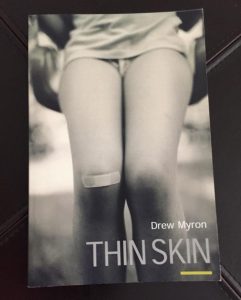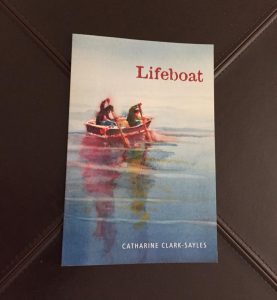
The second of our two followup interviews with Bobby Nash:
Bobby Nash writes novels, comic books, short stories, novellas, graphic novels, and the occasional screenplay for a variety of publishers. He is a member of the International Association of Media Tie-in Writers and International Thriller Writers. For more information on Bobby Nash please visit him at www.bobbynash.com
Jim: Writers often say there’s more to being a writer that simply writing. What does being a writer mean to you?
Bobby: Writing stories is a big part of what I do as a writer, but there are many writer-related and admin type jobs that go along with being a writer. Taxes and paperwork is a biggie. Keeping track of receipts, expenditures, mileage, things like that. Answering emails, fan mail, requests for interviews, convention correspondence, and notes from editors and publishers. Not only am I doing the work I have now and editing and promoting work I did previously, but I am also working on setting up future work. There’s also promotion and marketing that happens each day as I try to find new audiences for my books. Social media is part of that promotion work. I also do some self-publishing so there is production work, layout, cover design, and writing press releases that have to be done. All of these things are important, but doing these tasks takes away from my writing time.
Jim: What is the best way your readers can help promote your work?
Bobby:
Reviews are a fantastic way to let others know you read and enjoyed a novel. There are many places to leave a review. Amazon, Barnes & Noble’s website, GoodReads, book review blogs, places like that. Reviews don’t have to be complicated either. One thing I hear a lot of “I don’t know how to write a review.” A review can be as easy as “I liked it. Great book.” Reviews are a big help. The more reviews a book gets on Amazon, the more often Amazon recommends a book to customers. Then, share your review on social media. Share the link that gets your friends to Amazon, B&N, etc. The easier we make it for people to find the book, the better.
Word of mouth is great. Tell your friends. Tell your librarian. Tell you local bookstore. You’re your local book club. The more who hear about a good book, the more will hopefully pick it up.
Jim: What are the pros and cons between working with a publisher and self-publishing and do you have a preference?
Bobby:
There are pros and cons to both, I think.
With self-publishing, the writer does everything. Or pays to have things done. That means, in addition to writing the novel, the self-published author also creates the cover, does the editing or hires an editor, does the production and design work on the covers and interior, deals with pre-press, writes back cover copy and sales copy, writes press releases, promotes books, gets author photos made, sets up interviews, sends out review copies, and whatever else they can do to get the word out there to let as many know it’s available as possible because, without distribution, the self-published author can easily get lost in the sea of books on Amazon. On the plus side, the author has total control. The book will be exactly how he or she wants it. There is a lot of creative freedom in that.
Working with a publisher means that the writers turns in the manuscript to the editor and doesn’t have a hand in any of the production until the galleys come in. Often, the author has no control over the cover. Sometimes, they get to see the cover before it is released. Sometimes, they don’t. Working with a publisher means you don’t have control over everything, but they may have better distribution which can help sales. This is not always the case. Some small publishers are using the same self-publishing tools so their books aren’t any more widely distributed than your self-published books. You have to do your homework before querying any publisher.
Jim: How can writers and other creators help each other? Do they help one another?
Bobby: I see a lot of help happening in the creative community. Sometimes it’s obvious stuff like reposting another creator’s news of a new release or interview, leaving reviews of their work that you’ve enjoyed, or just giving them a shout out. Have you ever heard a writer say, “if you liked my novel, you’ll probably also like…”? I have. Creators, for the most part, tend to be very helpful and welcoming. They also help in less obvious ways. I know many writers who are supportive behind the scenes. If I have a problem, or even a bad day and need to talk, there are several writers I know I can call and they are there for me as I would be for them. It’s nice having someone who understands what you’re going through. When I have writer problems, telling my family doesn’t help because they don’t understand what I’m talking about, but one of my writer friends does.
Jim: What are your goals as a writer? How do you achieve those goals?
Bobby: I set many writing goals for myself instead of one big goal. One of my first goals was to see if I could actually write a novel. Then, I had a goal of getting published. Then, getting published again. I never really had a specific goal in mind with regards to winning awards, but I did have the goal of gaining the respect of my peers and I think the awards are a reflection of that. A future goal is being able to make a living as a writer. This one is hard and I’m still a long ways off from reaching it, I fear. Another goal is to have the term “Bestselling Author” in front of my name. Sadly, I still have a ways to go to reach that one as well.
Jim: Do you ever have days where you want to give up and “throw in the towel”? What do you do on those days?
Bobby: Yes. Yes, I do. Writing can be a frustrating business. The actual writing isn’t what makes me want to throw in the towel from time to time. It’s the business side of it that usually gets to me. Sales are low, books aren’t doing well, there’s no money for promotion, I lost money at a con, things like that do weigh on me from time to time and I wonder why I keep putting myself through this, but then I remember the parts of this that I love and all the hard work I’ve put into it and I press on. Will there come a day when I give it up? I hope not, but you never know.
Jim: Writing can be a very solitary profession. How do you keep from going “stir crazy”?
Bobby: Every once in a while, I have to get out of the house and be around people. That helps. I don’t get to do it as often as I’d like due to other obligations, but it’s nice to get out when I can.





